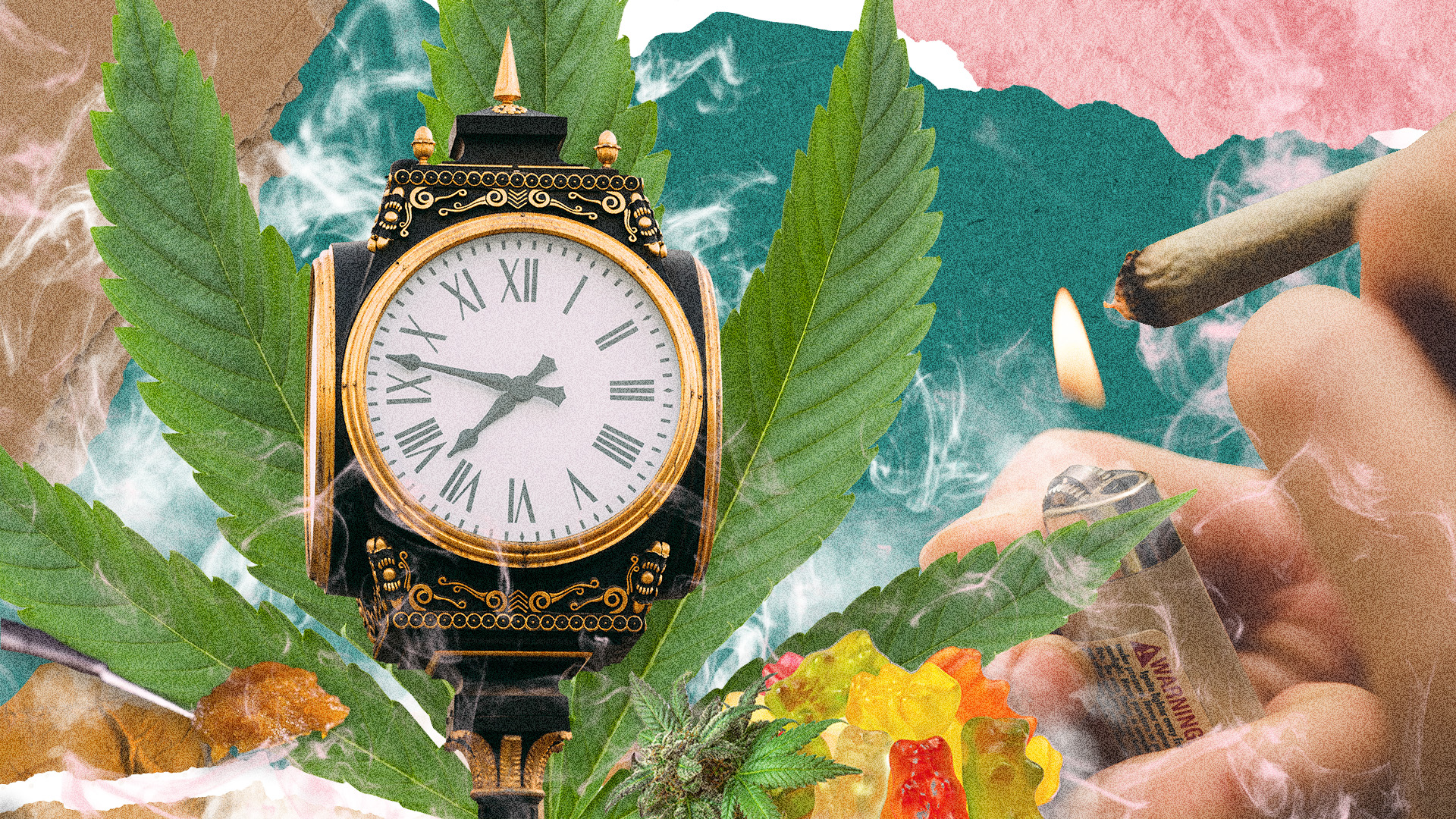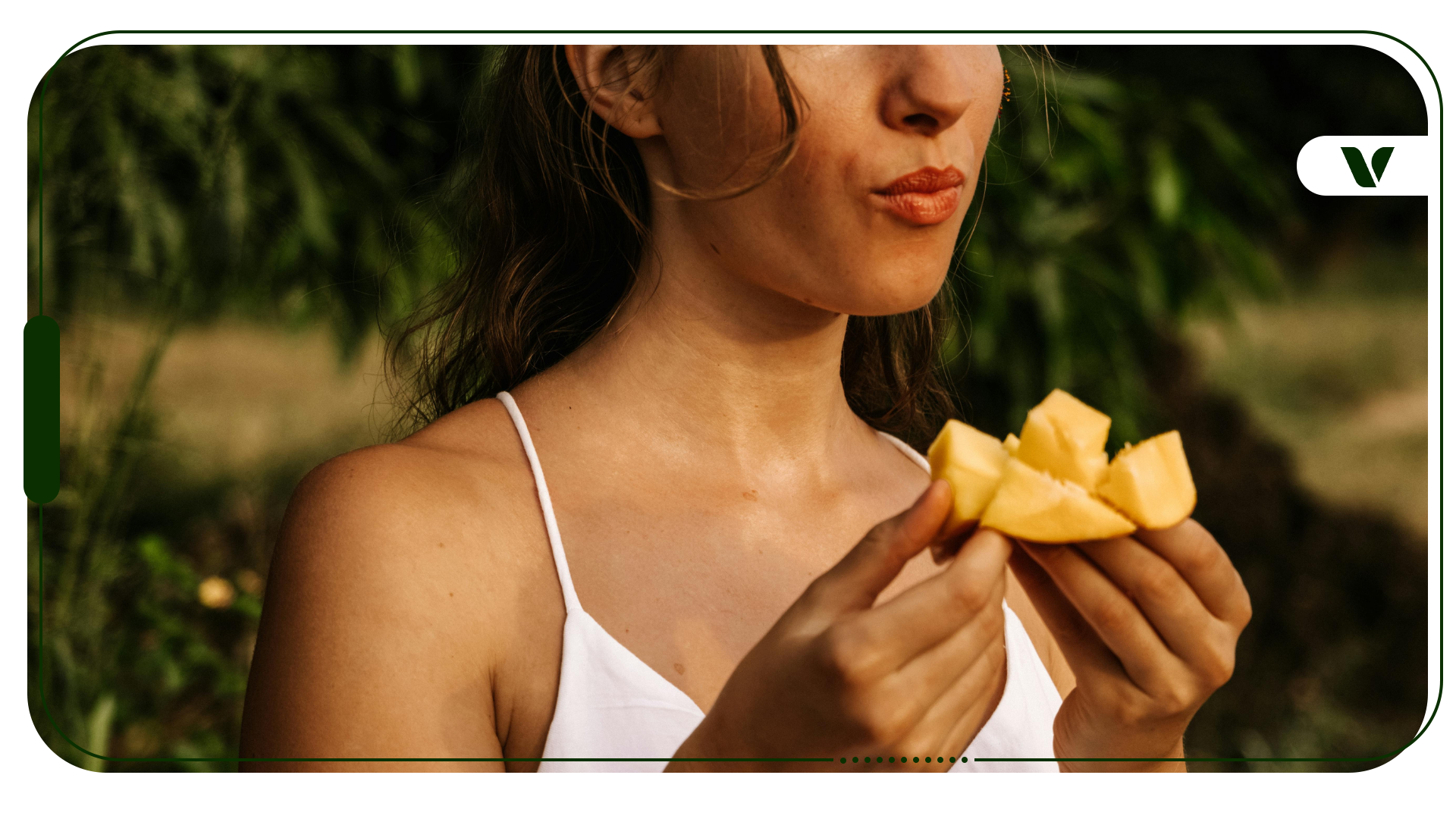How long will a person feel intoxicated after consuming cannabis? If you’re baffled by the vast range of answers to this question swirling around the internet, you’re not alone.
Different sources claim THC highs will last anywhere from 30 minutes to 24 hours—and none of them are necessarily wrong. Cannabis-induced highs depend on a lot of factors, from the user’s biology and experience with cannabinoids (the active compounds in cannabis) to the type, quality, and profile of the cannabis product.
Still, emerging research and decades of personal reports have given us a general idea of how certain cannabis consumption methods will impact the user. In this guide, we’ll break down cannabis intoxication to give you a better idea of what you’re in for. After all, peace of mind is crucial for a comfortable cannabis experience.
Methods of Consumption and How Long the High Lasts
The length of time you’ll feel the effects of cannabis after consuming it is entirely dependent on your consumption method. Smoking cannabis flower has traditionally been the most common method of intake, but many others—such as dabbing wax, vaping oil, and eating infused edibles—have grabbed the attention of consumers over the last decade. Each of these methods offers a different onset, intensity, and length of high.
In 2021, University of Sydney researchers published one of the most insightful studies on this topic. By meta-analyzing 80 studies on cannabis’ cognitive impact conducted between 2000 and 2020, the team narrowed down the window of cannabis impairment to 3-10 hours, adding that a “more typical duration of impairment” is 4 hours. You can read the full review, published in Neuroscience & Biobehavioral Reviews, here.
In addition to the dose and delivery method of THC, the researchers confirmed that users’ frequency of use and resulting tolerance to cannabis greatly affect intoxication level and length. For the study, they defined a moderate dose of THC as 10 milligrams—think one typical THC gummy—but noted that this dose would only produce mild effects in regular users. Because regular users can handle THC better, they were found to be less cognitively impaired by it than occasional users.
The onset of effects and amount of time you will feel high from a cannabis product depend on how the body processes the THC. Let’s explore what this looks like with each kind of consumption method.
Smoking
There are many ways to smoke weed. When THC is inhaled, it is quickly and directly absorbed into the bloodstream through the lungs, peaking within 3-10 minutes. That’s why smoking has one of the fastest onsets, meaning you will feel the effects fairly quickly.
After smoking cannabis flower, you can expect to start feeling the THC in about 2-10 minutes. Flower highs feel the most intense at the beginning and start to fade about 30 minutes to an hour in for most users. Depending on how much you smoked, the high will altogether last 1-3 hours. For a new consumer, though, it’s important to point out that while the true high will only last a few hours, trace effects (such as lethargy) may linger for longer.
Vaping
Vaping flower is thought to last a similar length of time to smoking. It works in the same way: when the cannabis vapor is inhaled, it’s absorbed into the bloodstream through the lungs, peaking within 3-10 minutes. Thus, the high should similarly last anywhere from 1-3 hours.
Dabbing and Vaping Concentrates
A popular consumption method among seasoned cannabis users is dabbing cannabis concentrates with a dab rig or dab/wax pen, which creates one of the strongest cannabis highs. Concentrates can also be vaporized using a vape pen; this method is much more gentle than dabbing, making it popular among newer users. Because both of these involve inhalation, the way your body processes the THC is the same as with smoking or vaping flower.
Due to the high THC content in concentrates compared to flower, the effects from dabbing or vaping concentrates kick in almost instantly. From there, however, the high is very similar to that of smoked or vaped flower, hitting hardest at the beginning and then slowly tapering off. If you just took a couple of hits using a vape pen, you will likely only feel a modest high for 30 minutes to an hour.
Dabbing is a much different story. Because concentrates that are dabbed (e.g., wax, shatter) can have upwards of 80% THC, it’s very easy to consume a lot of THC in a short period when dabbing. An experienced user might feel effects for 1-3 hours, but a newbie could be very high for many more hours depending on the dose. For this reason, those who are unfamiliar with dabbing should approach it with caution. Read our dabbing tips for more info on how to safely and effectively dab cannabis concentrates.
Edibles
Cannabis-infused edibles range from baked goods to candies to pills and capsules, and the experience offered by these products is wildly different from that of smoking, vaping, or dabbing.
When THC is consumed orally, it has to be digested and processed by the liver before it enters the bloodstream and produces a high. The time this takes varies widely; your weight, metabolism, age, biological gender, and recent diet all play a role. THC levels peak in the blood roughly 2-4 hours after eating an edible, which is why edible highs can be a rollercoaster.
A cannabis edible will generally hit between 30 minutes and 2 hours after it’s eaten (most users will start to feel effects in the middle of that range), and it’s crucial to wait that period out before taking more. Unlike inhalation highs that hit fast and hard, edible highs build up. While you might start to feel the THC 45 minutes in, the peak of the high could be hours ahead. Adding to the intensity of an edible high is the fact that the liver turns half the THC into 11-OH-THC, a compound thought to be four times stronger.
In sum, edible highs are the least predictable of any form of cannabis for a number of reasons. The effects of edibles can be felt for 2-10 hours, sometimes hitting in waves, and very high doses could potentially linger for up to 24 hours. If you’re new to edibles, you should start with 5-10 milligrams of THC and plan to be unavailable for the rest of the day.
Read More: How To Make Edibles
Sublingual Tinctures
Tinctures fall somewhere in between inhalation and oral consumption. These liquids, which are usually alcohol- or oil-based, are administered sublingually (i.e., under the tongue) so that the THC quickly enters the bloodstream through the mouth’s mucous membranes. After the tincture is held under the tongue for 30-60 seconds, it’s then swallowed. This dual delivery of THC is what makes sublingual tinctures a unique case when it comes to the length of effects.
If properly held under the tongue, cannabis tincture should create some effects in 15-30 minutes. Some of the THC in the tincture is digested after being swallowed, however, and that THC will not be felt until it’s processed by the liver (just like with edibles). Tincture highs build up similarly to edible highs and can last just as long.
Read More: A Guide to Making Cannabis Tinctures
Factors Affecting High Duration
Cannabis highs are primarily caused by tetrahydrocannabinol (THC), the most abundant and psychotropic cannabinoid in type I chemovar plants. This high, along with all of the other effects we get from cannabis, is possible because of an internal feedback network we all have called the endocannabinoid system (ECS).
When we consume THC, it interacts with cannabinoid (CB) receptors in our body to create euphoric sensations, relieve pain, boost appetite, and provide many other health effects. It should be noted, though, that THC highs can vary depending on the amount, product type and strain, and other compounds consumed (learn about the entourage effect here).
Why You Should Get Your Medical Marijuana Card
Veriheal has satisfied millions of patients nationwide by giving them access to these benefits
- Larger purchase limits
- Peace of mind
- Enhanced legal protection
- Access to higher potency strains
- Save up to 25% on cannabis purchases
- Skip the line at the dispensary
Nevertheless, though this process works similarly in most people, there are a number of factors affecting how long your high lasts, including:
Tolerance and Frequency of Use
With frequent use, the body builds up a tolerance to cannabinoids. Over time, the same amount of cannabis may produce diminished effects. As tolerance increases, individuals may need to consume larger doses or higher-potency products to achieve the desired level of intoxication — or attempt to lower their tolerance through T-Breaks.
While tolerance primarily affects the intensity of the high, the duration of the high itself is often less influenced. Once cannabis enters the bloodstream, its effects typically last anywhere 1-3 hours, regardless of tolerance.
Dosage and Potency
The amount of cannabis consumed directly impacts the duration and intensity of the high. Higher doses typically result in more pronounced effects and a longer duration of intoxication.
With higher doses, cannabinoids such as THC or CBD flood the body’s endocannabinoid system, leading to stronger and longer-lasting effects. However, there is a threshold beyond which increasing the dosage may not significantly prolong the duration of the high, as the body can only metabolize cannabinoids to a certain extent.
Similarly, potency can also affect the duration of your high. Potency refers to the concentration of cannabinoids, particularly THC, in the cannabis product. Higher potency products contain more cannabinoids per unit of weight. Cannabis strains with higher THC content tend to produce more intense and longer-lasting highs compared to strains with lower THC levels or higher CBD levels.
Method of Consumption
As noted above, your chosen method of consumption can also impact the duration of your high. Inhalation methods, such as smoking or vaping, typically result in a faster onset of effects but a shorter duration compared to eating edibles.
Edibles take longer to kick in because the cannabinoids must first pass through the digestive system before entering the bloodstream. However, once absorbed, the effects of edibles can last much longer, often several hours or more, compared to inhalation methods.
Strain Type
Different strains may also impact how long a high lasts. Each strain has a unique concentration of THC and CBD, as well as unique terpene profiles.
Strains with higher THC content tend to produce more intense and longer-lasting highs compared to strains with lower THC levels. Thus, higher THC levels can extend the duration of the high, especially when consumed in larger quantities or with higher potency products.
On the other hand, strains with higher CBD content may produce a less intense high and potentially a shorter duration compared to strains with minimal CBD and higher THC content.
Additionally, different terpenes can influence the duration and quality of the high. For example, myrcene, commonly found in indica strains, is believed to have sedative effects and may contribute to a longer-lasting high characterized by relaxation and sedation. Conversely, strains high in limonene, a citrus-scented terpene, may produce a more uplifting and energetic high, potentially with a shorter duration.
Read more: Different Strains of Weed: A Comprehensive Guide
How To Deal With A Bad High
Perhaps you’re reading this article because you’re experiencing a distressing cannabis high and want it to be over…now.
While the side-effect paranoia that can arise from taking in too much THC often feels very real and scary, know that cannabis on its own will not fatally harm you. Cannabis author David Schmader wrote, “Even aspirin can kill you if you take too much, but a fatal dose of marijuana would require ingestion of fifteen hundred pounds in fifteen minutes—a physical impossibility for any human, even Snoop Dogg.”
Nonetheless, feeling too high is never fun—we’ve all been there. The cannabis community has put together a list of tricks over the years for easing this very problem, including eating a snack, chewing on black peppercorns, taking CBD, and talking to a friend. For more information on these and other ways of counteracting THC, take a look at these articles:
Final Takeaway
It’s getting easier to predict what the various kinds of THC highs feel like thanks to emerging research, but the reality is that every consumer’s experience with THC will be different. The length and intensity of your high will ultimately be based on your tolerance to THC, the amount of THC you consume, and the method of consumption you choose (e.g., dabbing, edibles). What rocks one person’s world for hours may only produce mild effects in someone else—or even none at all.
As a good rule of thumb, make sure to clear your schedule for the rest of the day if you’re planning on trying a new consumption method (or are new to cannabis altogether). This will help you avoid any issues if the high lasts a little longer than expected. If you’d like more pointers, book a consultation with one of Veriheal’s cannabis coaches for a personalized deep dive into cannabis use.
Frequently Asked Questions
How long do cannabinoids stay in the system?
Cannabinoids can stay in your system anywhere from 24 hours to 90 days, depending on the method of testing. The following are estimated detection windows:
- Urine: up to 3 days (up to 6 weeks or more in heavy users)
- Blood: up to 7 days
- Hair: up to 90 days
- Saliva: up to 24 hours
Can you stop being high faster?
To counteract the effects of your high, try eating something with peppercorn in it or ingesting more CBD. Both of these methods may help to calm the anxiety you may feel from being too high.
Can you stay high for longer?
While scientific evidence is somewhat lacking in this area, experts and consumers have discovered a whole host of foods and drinks that are thought to boost your high; mangoes, nuts, coffee, and kombucha are among them.
When is it safe to drive after consuming cannabis?
To ensure maximum safety, you should wait about 4-5 hours to drive after inhaling THC and probably a few hours longer after taking an edible. Based on one study’s findings, most driving-related skills are recovered within 5 hours of inhaling 20 milligrams of THC. When consumed orally (i.e., in an edible), though, the same amount of THC impairs driving for about 8 hours.
This article was originally published in July 2022 and most recently updated in May 2024.
Author, Share & Comments








